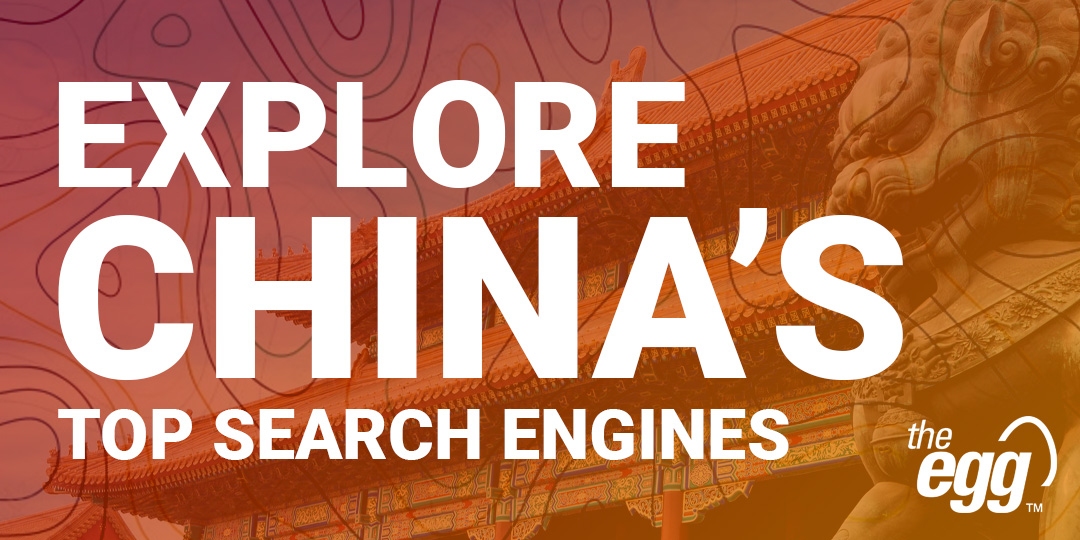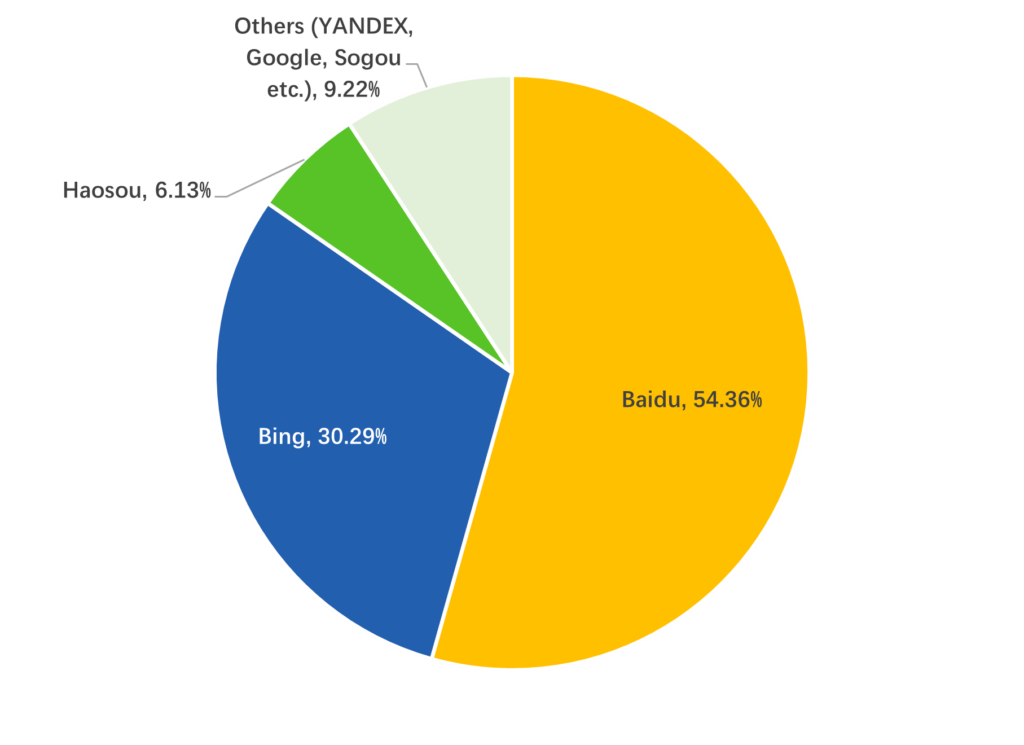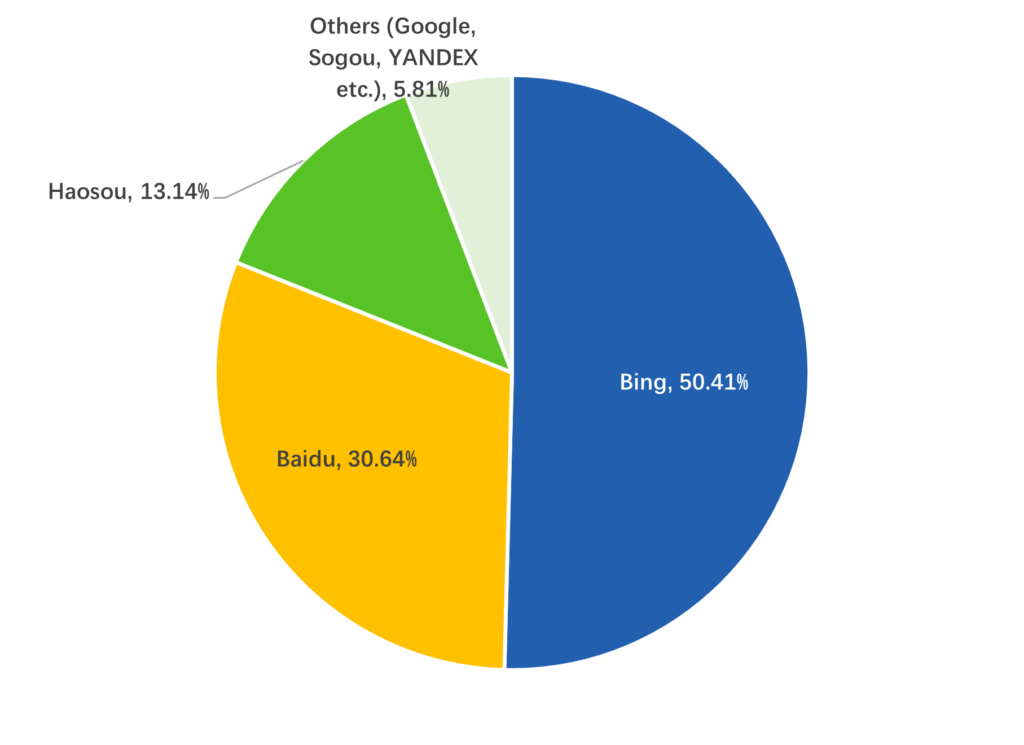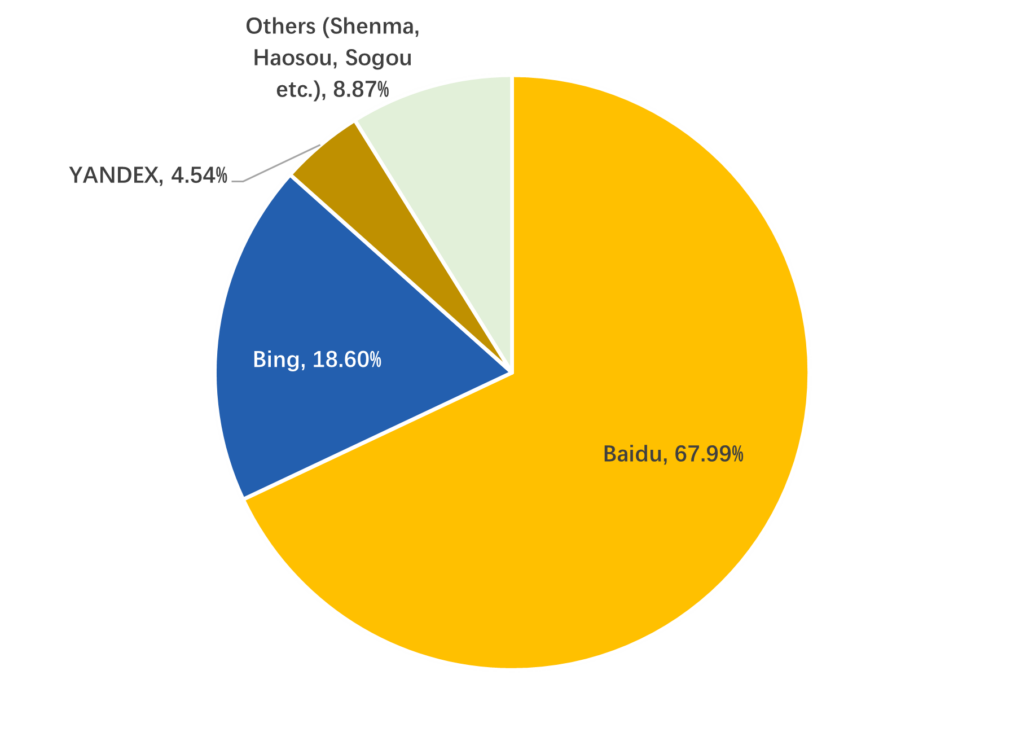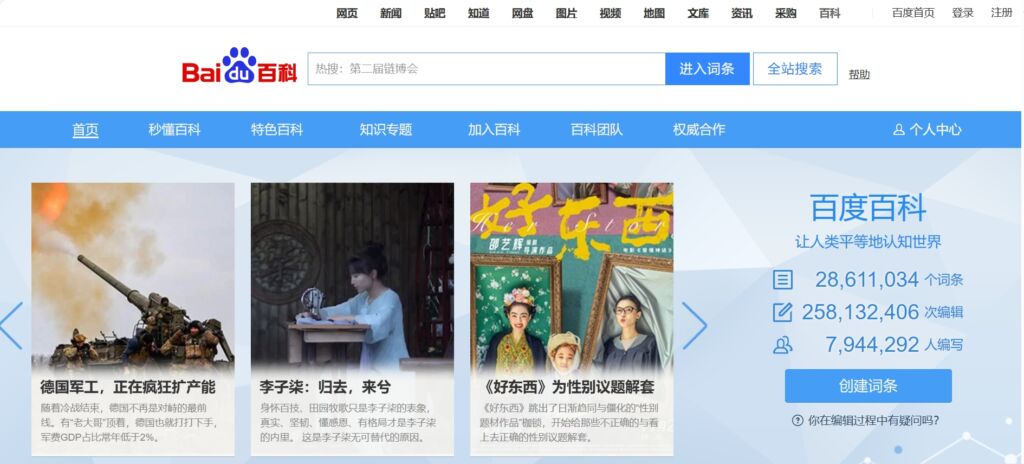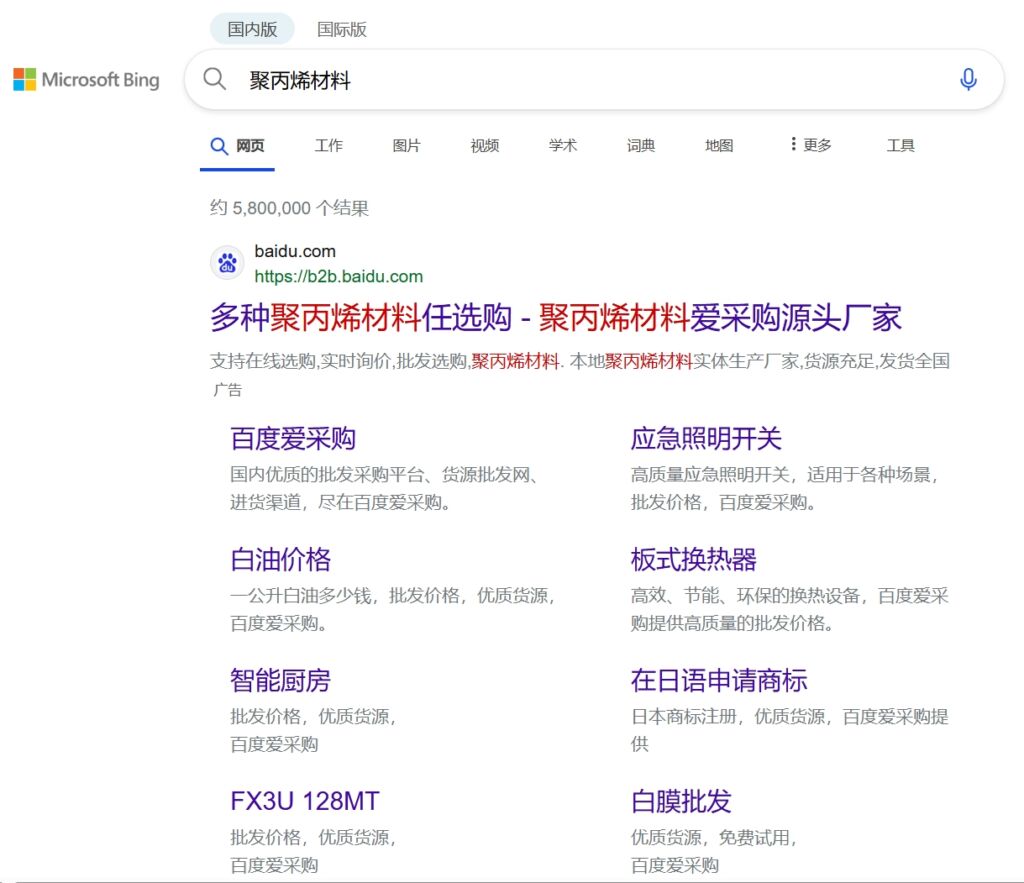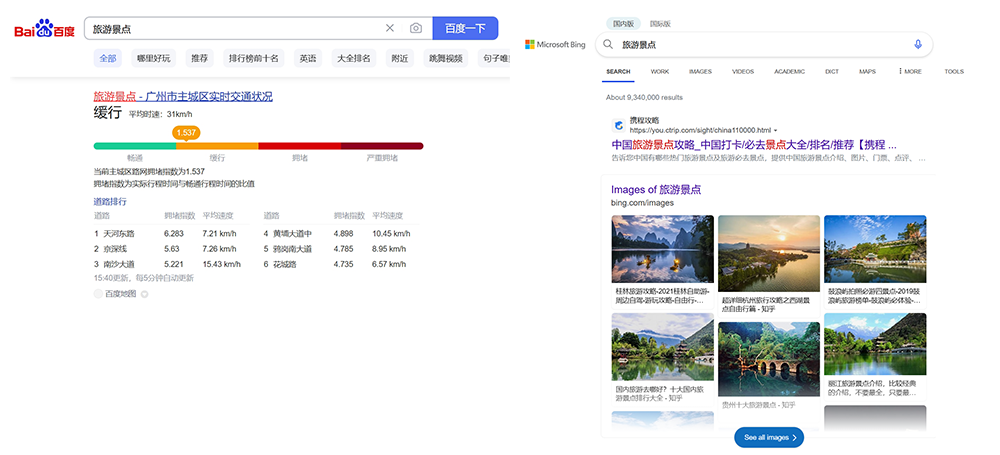MOST POPULAR SEARCH ENGINES IN CHINA – 2025
Despite the rising importance of social search in China, traditional search engines still play a crucial role in influencing local purchasing behaviors. Among nearly 1.1 billion (1,099.67 million) internet users in China, 75% use search engines to find and purchase products and services, driving the highest consumer market in the world. However, search engines in China are unlike those anywhere else in the world.
With Google not being present, Baidu has emerged as the leading local search engine, continually competing with the international giant Bing for user loyalty and market share.
In this article, we will introduce the most popular search engines in China and how to connect with the country’s vast audience.
What is the most popular search engine in China?
Baidu is the most popular search engine in China, holding a market share of 54.36% as of November 2024. It is often referred to as “China’s Google.” Baidu offers various features, including search, maps, news, and translation. It also has some unique capabilities, such as the ability to search for information using Chinese dialects.
Bing is the #2 most popular search engine in China, with a market share of 30.29% across all devices.
Due to changes in Baidu’s search ecosystem, its market share has gradually declined over the past 12 months, dropping nearly 15 percentage points from 68.52% in November last year. In contrast, Bing’s market share has increased by nearly 20 percentage points, rising from 11.5% in November last year.
TOP SEARCH ENGINES IN CHINA BY MARKET SHARE
CHINA’S SEARCH ENGINE MARKET SHARE (ALL DEVICES)
- Baidu 54.36%
- Bing 30.29%
- Haosou 6.13%
- Others 9.22% (YANDEX, Google, Haosou etc.)
Source: StatCounter (as of Nov 2024)
But despite Baidu’s overall market dominance, the breakdown by desktop and mobile tells a different story.
CHINA’S SEARCH ENGINE MARKET SHARE (DESKTOP)
- Bing 50.41%
- Baidu 30.64%
- Haosou 13.14%
- Others 7.92% (Google, Sougou, YANDEX etc.)
Source: StatCounter (as of Nov 2024)
- Bing holds a market share of 50.41% among desktop users in China. After adding AI search capabilities in March 2024, Bing’s market share has steadily increased. Following the addition of AI features, searches now produce improved Knowledge Cards, engaging AI-generated Stories, and richer search results.
- Interestingly, Baidu’s desktop market share is only 30.01%.
CHINA’S SEARCH ENGINE MARKET SHARE (MOBILE)
- Baidu 67.99%
- Bing 18.60%
- YANDEX 4.54%
- Others 1.55% (Shenma, Haosou, Sougou etc.)
Source: StatCounter (as of Nov 2024)
Observing the mobile sector:
- Baidu dominates the mobile search market with a share of 67.99%.
- In second place is Bing, with a mobile market share of 18.60%, steadily increasing from just 5.72% in March 2024.
Therefore, across all devices, Baidu and Bing are the two most popular search engines in China, providing brands with unparalleled opportunities to reach the thriving internet population in China, which is eager for content and technology.
For international brands looking to enter the Chinese market, investing in Bing is certainly worthwhile, but it is also essential to consider Baidu, the search engine that local users are more familiar with.
To help you tap into this substantial market potential, let’s explore the latest trends, market shares, and similarities and differences between Baidu and Bing.
BAIDU VS BING: INTRODUCTION TO THE MOST POPULAR SEARCH ENGINES IN CHINA
WHAT’S UNIQUE ABOUT CHINA’S SEARCH MARKET?
China has developed its own platforms that understand unique Chinese language, culture, and search intent. Localizing content for Chinese platforms is critical to connecting with Chinese users—knowing and actioning upon how and why they search will get you found.
Despite the impact of Bing, a global search engine, the local giant Baidu remains strong. The platform provides users with valuable information through various channels, including websites, news, images, videos, and blogs.
Baidu even has its own properties, such as Baidu Baike (the Chinese answer to Wikipedia), Baidu Baijiahao (Baidu’s online publishing platform for self-media), Baidu Images for visual search, and more.
Baidu Baike interface
In comparison, Bing is more responsive to changes in website content and can deliver a more diverse and valuable range of web results to users, which is a key reason for its rising market share. Additionally, Bing also provides high-quality content from Baidu, such as Baidu Baike, which is well-received by users.
However, Bing’s search ecosystem is undergoing continuous adjustments. Observing trends over the past 12 months, the proportion of advertisement results on the Bing CN homepage search results is on the rise, which has had a negative impact on user experience.
Advertisement results on Bing
TOP SEARCH ENGINES IN CHINA: RECENT TRENDS & PAST DATA
SEARCH ENGINE MARKET SHARE IN CHINA
Since 2021, Baidu’s market share on desktop has been on a continuous downtrend, dropping sharply from 57.96% to 35.93% in 2022 alone.
This downward trend is partly due to Bing challenging Baidu’s dominant position in the search engine market. During this period, Bing underwent multiple version updates, focusing on visual upgrades, feature enhancements, and improvements in user experience, making it more attractive to users.
As concerns about the Baidu search experience have emerged, Bing’s market share has significantly increased from 18.02% in 2021 to 50.41% in 2024. In March 2024, Bing announced the addition of AI Q&A features to its search results in Bing China, which may also be a factor contributing to its rising popularity.
SEARCH ENGINE |
2019 |
2020 |
2021 |
2022 |
2023 |
2024 |
|---|---|---|---|---|---|---|
| Baidu | 42.46% | 24.88% | 52.32% | 35.93% | 38.30% | 30.64% |
| Microsoft Bing | 5.92% | 5.29% | 18.02% | 24.80% | 33.93% | 50.41% |
| Haosou | 4.51% | 3.56% | 5.42% | 7.34% | 14.66% | 13.14% |
| Sogou | 40.45% | 59.96% | 12.64% | 27.20% | 6.36% | 1.59% |
| 6.41% | 6.08% | 10.78% | 3.81% | 4.52% | 3.03% |
China’s search engine market share (desktop): From 2019 to 2024 (as of November 2024)
SEARCH ENGINE |
2019 |
2020 |
2021 |
2022 |
2023 |
2024 |
|---|---|---|---|---|---|---|
| Baidu | 81.19% | 92.82% | 94.71% | 79.45% | 79.13% | 67.99% |
| Microsoft Bing | 0.64% | 0.35% | 0.64% | 2.64% | 3.98% | 18.60% |
| Shenma | 10.87% | 2.79% | 1.74% | 6.46% | 3.72% | 2.77% |
| Sogou | 6.32% | 2.69% | 1.17% | 2.08% | 4.48% | 2.16% |
| Haosou | 0.42% | 0.82% | 0.37% | 3.22% | 2.76% | 2.21% |
China’s search engine market share (mobile): From 2019 to 2024 (as of November 2024)
TOP SEARCH ENGINES IN CHINA: BAIDU VS Bing
BAIDU VS BING: SERP RANKINGS
Baidu tends to display results that are more self-referential on its SERP, while Bing’s search results are more diverse.
For example, when searching for “旅游景点” (tourist attractions) on Baidu and Bing, Baidu Maps appears at the top of Baidu’s SERP, while the first organic search result on Bing is ctrip.com.
At the same time, Baidu’s Baijiahao content occupies multiple positions on its SERP. For instance, the last four search results on the first SERP for the query “tourist attractions” are all from Baijiahao.
Since Bing also recognizes that Baidu Baike provides high-quality content, the entries from Baidu Baike can occupy prominent positions in Bing’s search results for certain keywords.
Baidu’s SERP (left) vs. Bing’s SERP (right): “旅游景点” (travel attractions)
BAIDU VS BING: SERP STRUCTURE
To maximize page load speed and improve user experience, both Baidu and Bing display up to 10 organic results per page by default.
The screenshot below highlights how the SERPs for both search engines are structured:
- Organic search results, which are similar across both SERPs, are outlined in red
- Paid search ads are outlined in green
- Vertical search results (based on topic, media type, and content genre) are outlined in blue
- Results from Baidu- and Bing-owned properties like Baidu Baike, Bing Maps etc., are outlined in purple
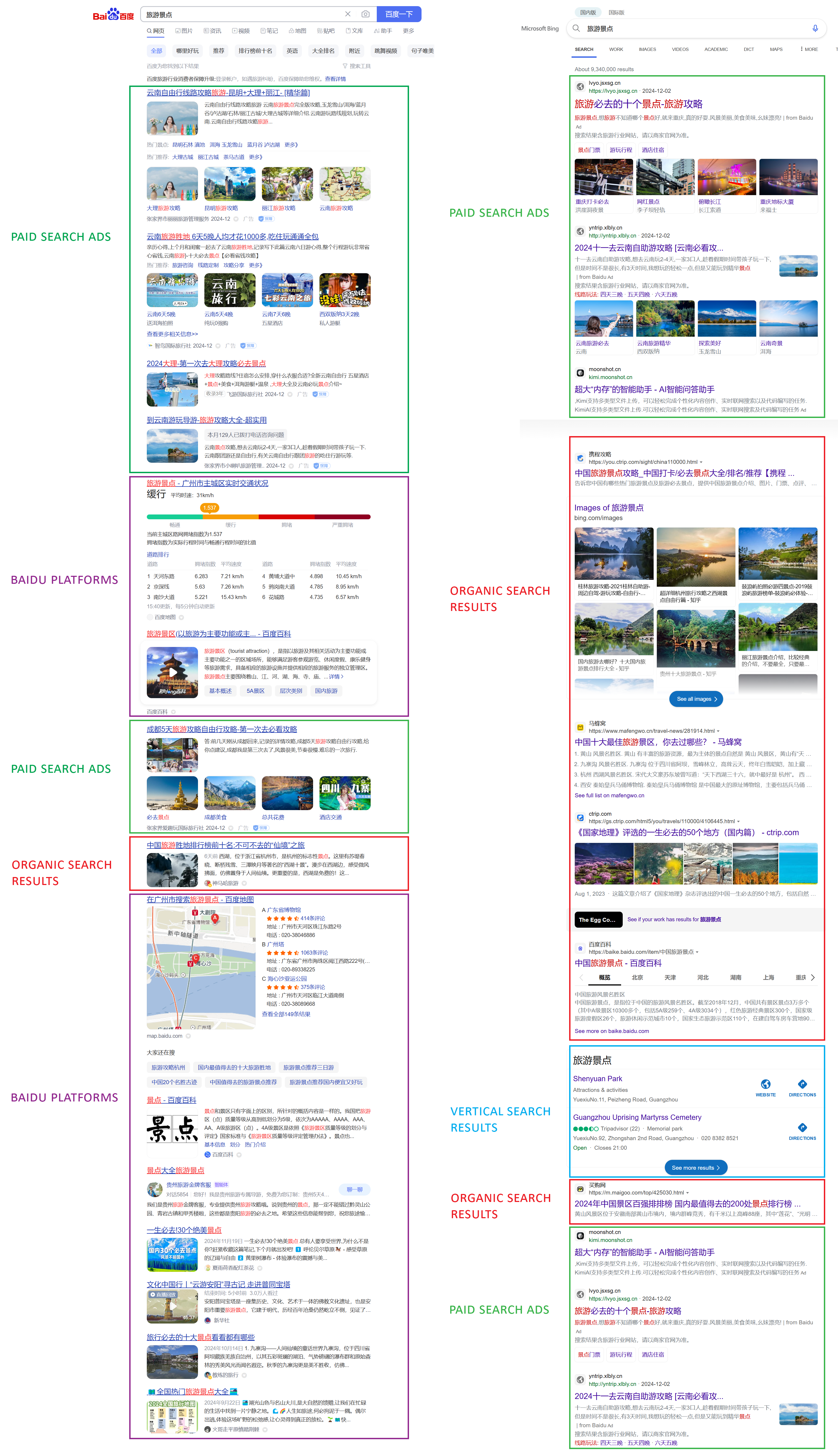
Note: Baidu lets users change the default settings to display up to 50 results on the SERP. But this customizability is currently not available on Bing.
BAIDU VS BING: SERP SNIPPETS
On both SERPs, organic results generally feature a title, followed by a simple snippet with information about that page’s content, then the landing page URL or the name of its website/Baidu Baijiahao (or publisher number).
In some cases, there is a feature image to the left of the meta description.
Baidu and Bing have similar organic listings on their SERPs. On both, the search term (the example below shows “Swarovski” as the search term) is in red to highlight the relevance of the page’s content to the search query.
Search results from officially verified websites on Baidu display an “official” (“官方”) icon in blue after the title tag. Websites that have not been verified by the relevant search engine will not have this icon. Bing does not have such certification, but websites can achieve rich media results by adding Schema Markup code, making their official sites more prominent.
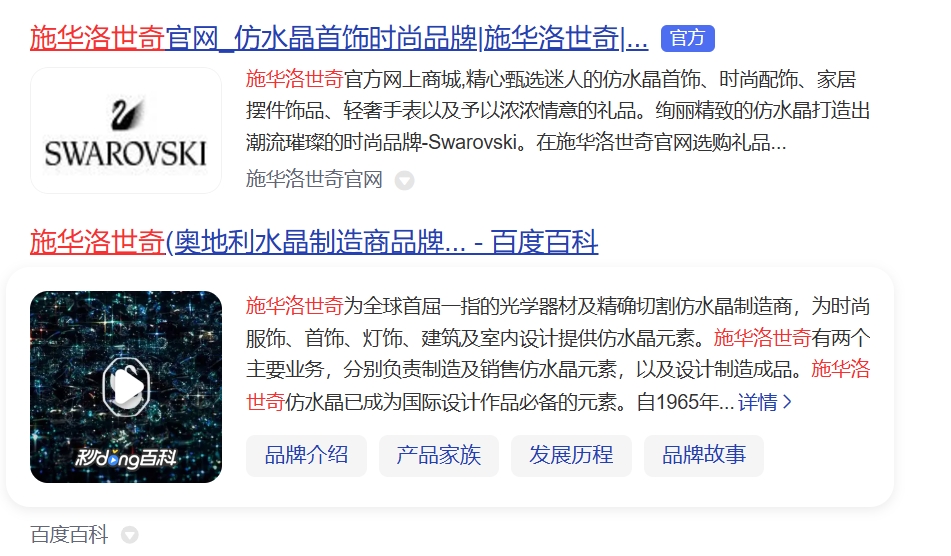
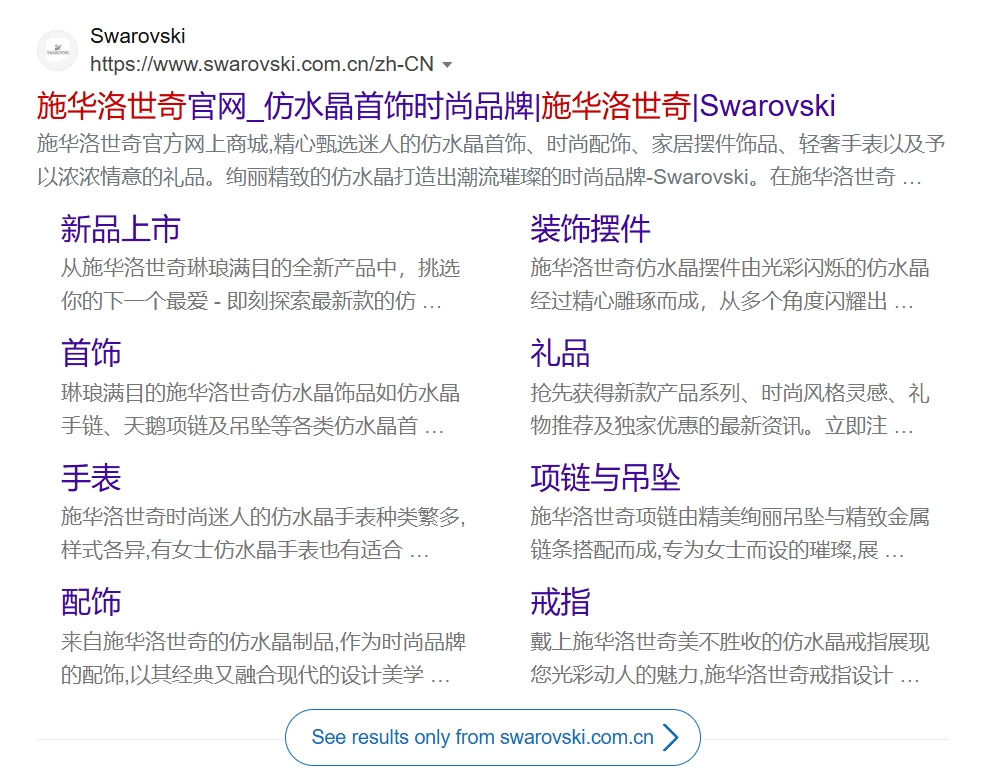
BAIDU VS bing: PAID SEARCH DISPLAY
Both Baidu and Bing display advertisement results on their SERPs, with ads appearing at the top, bottom, and possibly interspersed within the organic search results.
Advertisement results must have an ad label, but Bing’s ads are relatively harder for users to notice. On certain search result pages with a large number of ads, Bing may have fewer than 10 organic search results, whereas Baidu typically has at least 9 organic search results.
Learn more about paid search in China.
WHAT IS THE MOST POPULAR SEARCH ENGINE IN CHINA?
Baidu is the largest search engine in China, with a market share of 54.36%. Bing is the second-ranked search engine in China, holding a market share of 30.29%.
However, as Baidu and Bing continue to integrate organic search results and paid search results in their SERPs, users who prefer a simpler search experience may find themselves toggling between these two search engines while looking forward to a new search engine that offers straightforward search results.
Ultimately, to succeed in China, it is essential to localize for Chinese users, understand how Baidu and Bing interpret SEO best practices, and incorporate that understanding into an overall SEO strategy.


